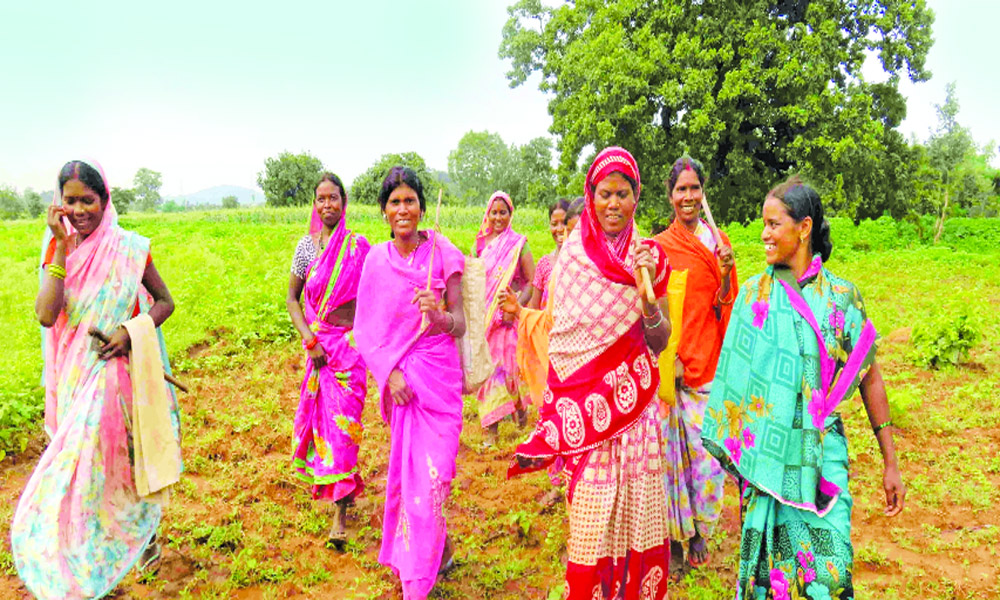Women need healthcare the most but often they are the ones who do not have adequate access to it
As we celebrate another International Women’s Day, it is time to yet again take stock of the progress in gender equity across various parameters of human development. And while there may be some reason to celebrate women making inroads into numerous male-dominated ecosystems, the healthcare space remains an issue of persistent concern.
The fifth round of the National Family Health Survey (NFHS-5), released in May last year, posited that as many as 60 per cent of the women in India are unable to access medical care due to inadequacy of infrastructure and health personnel. Decomposition of the data reveals that 31 per cent of the women were apprehensive about seeking care due to the non-availability of female health providers in the primary health centres they visited, and only 10 per cent could take independent decisions about their health as compared to 33 percent of men. It is obvious that not much has changed since the last round of the NFHS in 2014-15 when 66.5 per cent of the women interviewed had reported facing at least one problem in accessing medical care. And even more alarmingly, the situation has actually deteriorated between the two rounds of the survey as far as another critical health indicator is concerned. NFHS-5 found that the prevalence of anaemia among women has increased since the previous survey, from 53.1 per cent in 2016 to 57 per cent in 2021.
So, what ails the public health system in the country, preventing it from ensuring gender equity across geographies and societies? According to Dr Prashanth N. Srinivas, Assistant Director, Research, at the Institute of Public Health, Bengaluru, "Women's limited access to healthcare is a complex problem, and social determinants like lack of financial autonomy and power imbalance at home hinder women from seeking medical care.” This gender bias is also reflected in the significantly lower healthcare expenditure (HCE) incurred by women versus men.
The India Human Development Survey (IHDS) shows that despite higher short-term and major morbidity among females than males, the average HCE is significantly lower among women across all socio-economic categories. The IHDS is a longitudinal multi-topic survey of 41,554 households across India, jointly conducted by researchers from the National Council of Applied Economic Research (NCAER), New Delhi, and the University of Maryland, USA, in two rounds, in 2004-05 and 2011-12. Using IHDS data from both rounds, researchers Saikia, Moradhvaj, and Bora conclude that the male–female gap in major morbidity-related expenditure increased from Rs. 1298 to Rs. 4172 between the two rounds of IHDS.
Moreover, they highlight rampant gender discrimination in nutrition, immunisation, and treatment-seeking behaviour for both young and elderly populations. A deeper analysis strengthens the discrimination argument further, suggesting that if boys are hospitalised, Indian parents are more likely to borrow or sell assets to finance the hospitalisation whereas girls are often kept at home even when hospitalisation becomes imperative.
The NFHS and IHDS are not the only surveys to red-flag gender inequities in health care. A study published in The Lancet Oncology in November 2022, which examined data pertaining to 11,000 paediatric patients from two cancer-based registries in Delhi and Chennai, respectively, came to the fore as World Cancer Day was being marked on February 4.
The study noted that in Delhi, for every two male children being diagnosed with cancer, only one female child was receiving a concomitant diagnosis, and the respective ratio was 1: 1.44 for girls versus boys in Chennai.
Although these figures may indicate a higher incidence of childhood cancer among boys, the gender skew clearly emerges from the fact that among the 22,000 children with cancer registered in the institutions selected for the study, more boys than girls sought treatment.
Social activists contend that the inherent bias of girls being left to suffer illness while boys are given ready access to any level of treatment has been a grim reality for years in India. Poonam Bagai, the co-founder of CanKids, an NGO that persuades families to overcome their recalcitrance to get girls treated for cancer, points out that the stigma of cancer is even stronger than the gender bias. “Why should we spend so much on treating the girl as nobody will marry her even if she survives” is a common refrain among families where daughters have been diagnosed with cancer, which also accounts for a much higher number of girls quitting oncological treatment mid-way as compared to boys. This perception can be extrapolated for other chronic diseases too, which necessitate high expenditures and caregiving commitment.
How can we stop this medical neglect of our women and girls? While doctors suggest that providing increased financial assistance and better healthcare access to deprived families is one way forward, social workers insist that the problem needs more compassionate solutions at the societal level. CanKids, for instance, has set up a ‘girl brigade’ or peer support group of cancer survivors who counsel other young women to seek medical care, identify funding options for treatment, and fight both the social stigma and gender discrimination.
It is small steps like this, in tandem with conducive policies, that could go a long way towards overcoming the gender-based malaise afflicting health care in the country.
(Writer is Editor at National Council of Applied Economic Research. The views expressed are personal)
























